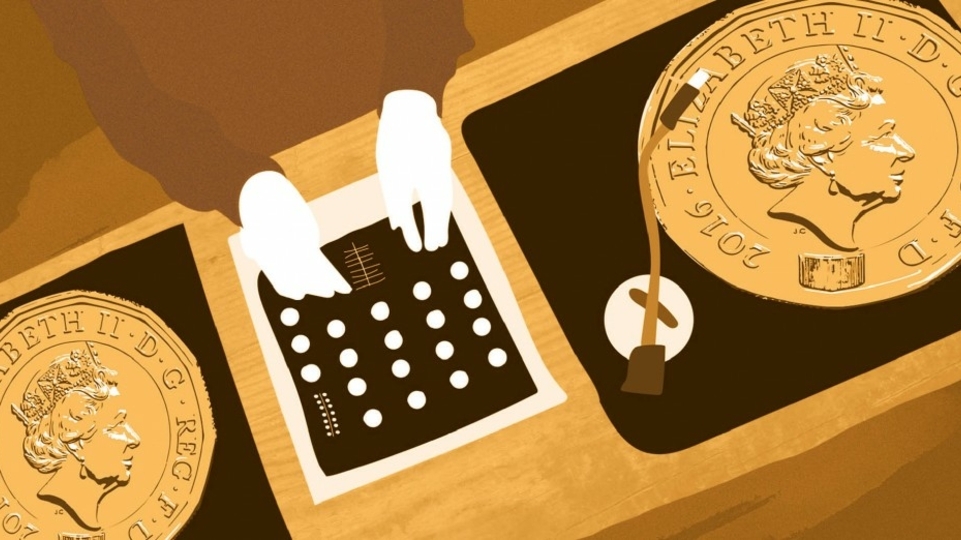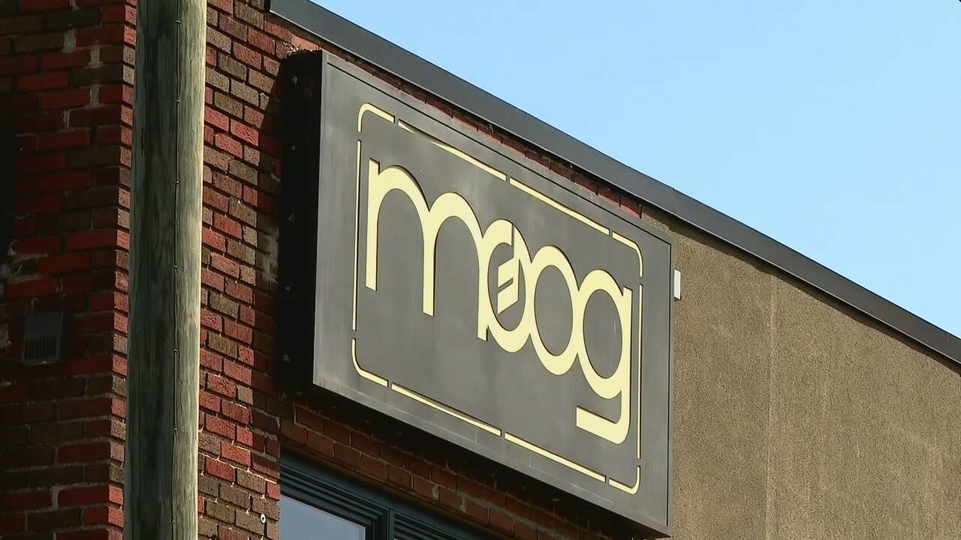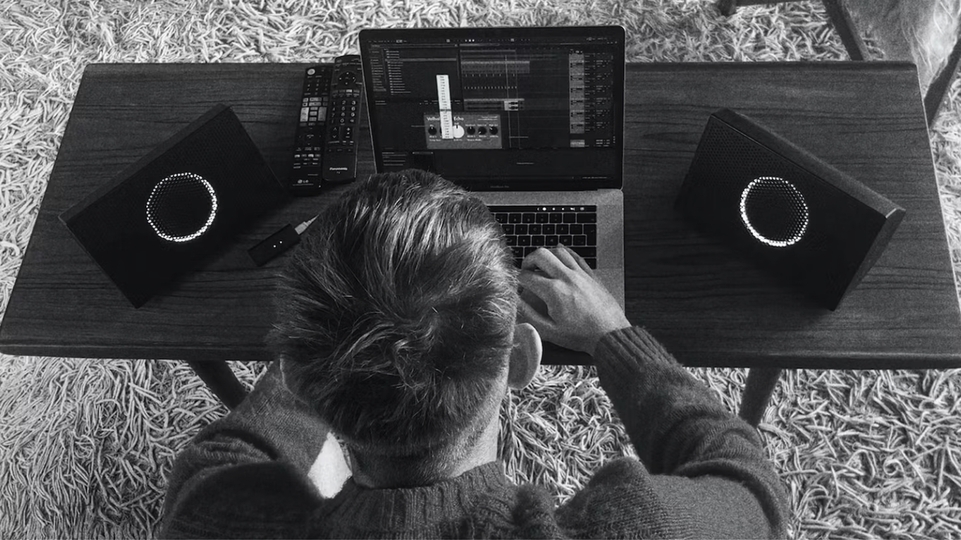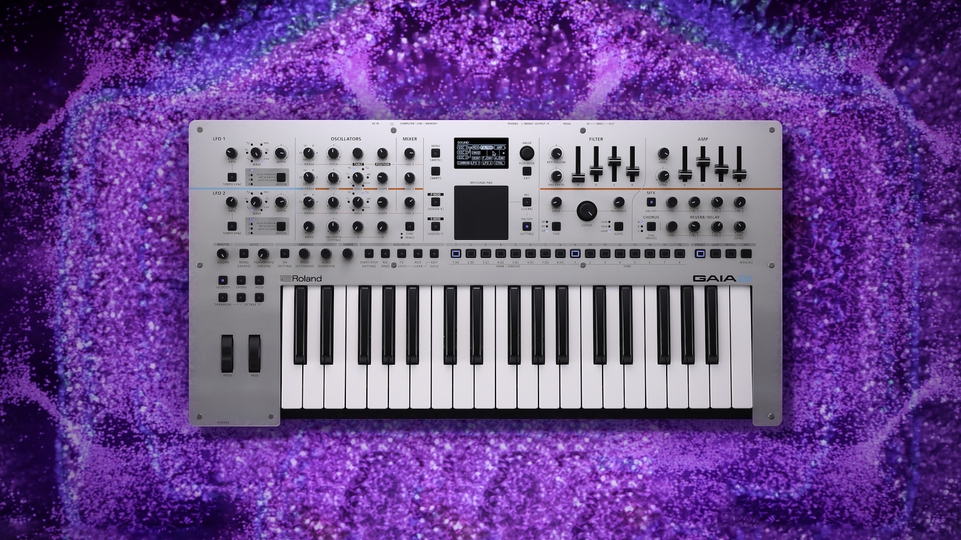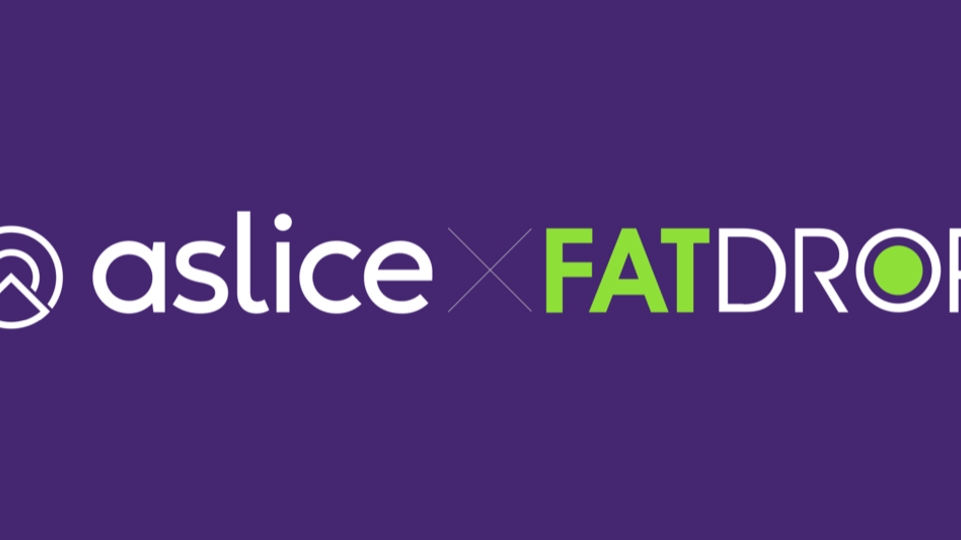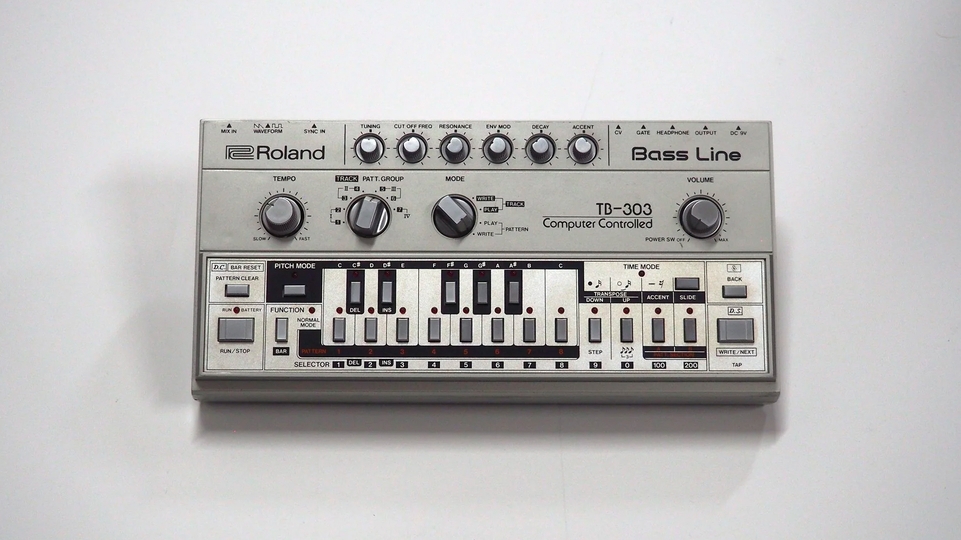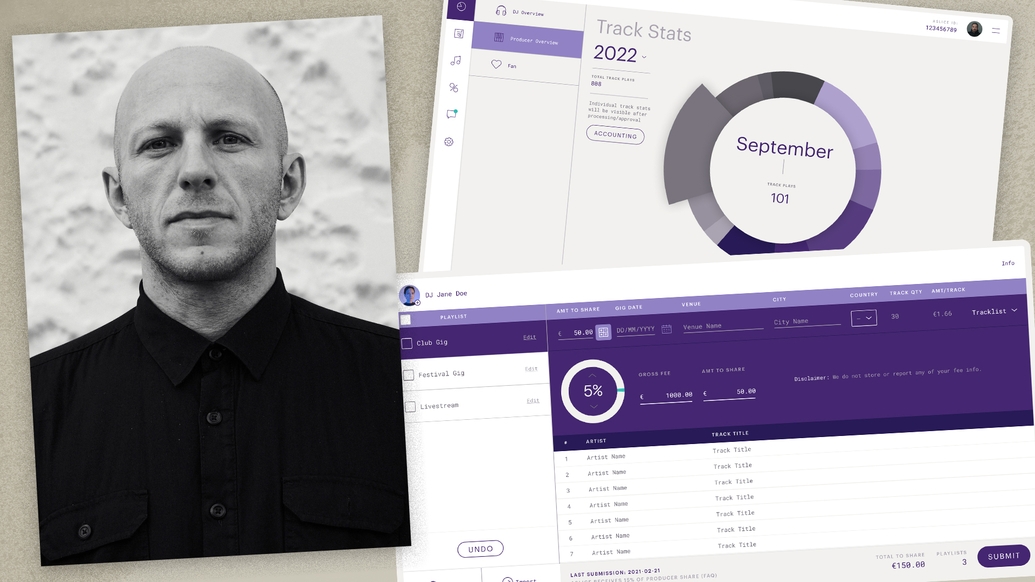
Aslice wants to fix the imbalance between DJ and producer incomes, here’s how it works
DVS1's new service Aslice asks DJs to donate a percentage of their fees to the artists whose music they play. Will it revolutionise how producers are paid in electronic music?
Aslice is a new platform founded by DJ and producer DVS1. The service is designed to help close the gap in income between DJs and producers in electronic music. In 2019, according to the IMS Business Report, DJs made a total of $1.1billion from touring. Compare that to the figures reported in 2021 that only 0.4% of artists on streaming platforms generate enough income to make a living. While that figure reflected the whole industry, rather than electronic music specifically, it reflects the overall picture of a lack of revenue streams for producers. Many DJs can earn four- or five-figures per gig playing the very same music that provides no remuneration for the producer.
By facilitating a revenue share between a DJ’s fee and the artists whose music they play, Aslice is hoping to close the gap, create more revenue streams and opportunities for producers and raise awareness of the disparities between the two fields. It works by asking DJs to share a percentage of their fee — they recommend 5% — with the producers and artists whose music they play in any one set. That means, if they were paid £5,000 for the set, £250 would go to the artists. If they played 20 tracks, £12.50 for each producer on the setlist. It might not seem like a lot, but it would take over 5,000 streams on Spotify to generate a similar amount, and if you take into account all the DJ sets that happen across the world every weekend, the numbers could quickly add up.
You may as the question: isn’t it the role of PROs to collect setlist data and distribute royalties to the rightsholders whose music is performed in public? The answer is yes, but a myriad of issues like bad metadata, unreported setlists and lack of education for producers means that much of that money goes unpaid. In fact, Association for Electronic Music (AFEM) estimate that as much as £100m a year doesn’t go to those who are owed it. This only serves to widen the income gap between DJs and producers. We've covered these issues in detail in the past, and solutions like Shazam-style boxes at clubs and festivals to record what’s being played in real-time have been proposed, but they haven't been adopted at scale. Aslice say, with enough voluntary support from DJs, they could earn as much as $55m a year for producers and musicians, based on the IMS Business Report’s DJ income figures.
It’s a noble cause, but is it realistic? Will DJs really voluntarily give up five or more percent of their DJ fees, and will it really make a difference? Aslice say their private beta saw 110 playlists uploaded during the beta period, featuring a total of 5,291 tracks. On average, playlists contained 49 tracks and raised $60.96 in total, with an average of $1.40 per track, though they say some made as much as $10 or $20 depending on the percentage donated.
It’s a concept backed by the industry, with Richie Hawtin calling it “one of the most important, exciting, and altruistic projects our scene has ever seen”, while Hagi Craig, who runs the agency Detroit Premier Artists, said: “Aslice might be the DJ/producer retirement plan we have all been dreaming of but didn’t know how it could work.”
A lot of questions still remain, so we reached out to DVS1 — aka Zak Khutoretsky — to get a full rundown on Aslice, how it works, how he sees it playing out, and what more DJs can do to support the producers who make the music they play every weekend.
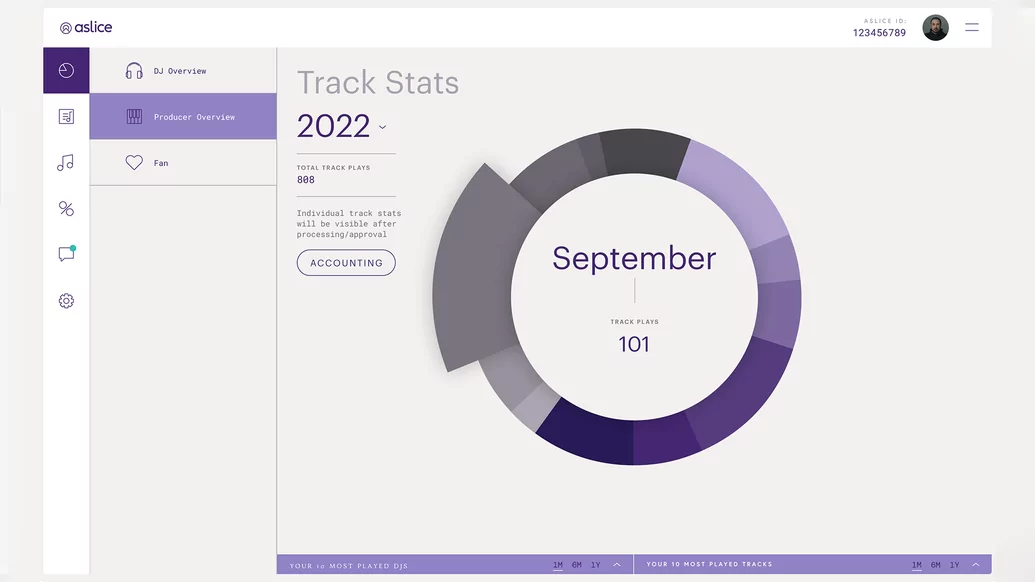
Why did you decide to start Aslice?
DVS1: “As a DJ who makes my living off of the backs of producers whose music I play, I felt it was time to offer an alternative to the existing models that don’t work. The break during the pandemic offered me an opportunity to really focus on this problem and find solutions that actually work. Over the years, I have continued to rise in my success as a touring DJ, while I know first-hand from being a label owner and producer myself how little I and others earn from that role.”
Why are traditional PROs not able to fulfil this role?
“Most of them don't take the DJ world seriously at all. Even though electronic music is one of the most popular genres, most of our music is still not set up to be monetised fairly, from streaming to royalties. With the hundreds of millions of dollars PROs have collected on our behalf, you might think they would fight for a better collective future or could have created better technology, better interfacing or even simply strive to have better social connections to artists in our field. Some PROs still don't consider DJs live acts even. Those that do still make reporting our playlists difficult or nearly impossible. Others find every reason not to accept those lists even once we have crossed the difficult and confusing thresholds of submitting them.”
What's been the response from DJs so far?
“While I can only judge from our private beta testing and conversations, the response has been great. So many DJs want to do the right thing and just need an ‘easy button’ to do that. Once we show them the simple process and almost immediate results from our system, they seem to be convinced of the possibilities quite fast.”
If electronic music has such a wide enough market and audience that DJs are making five- and six-figure sums, why is so little of that money-making its way back to the people who made the music?
“I can't even blame the DJs for this issue. However, we as DJs need to consider that times have changed and producer revenues are going drastically down, while our fees are generally going up. One major factor is that so much music is now digitally available and sent through free promotions to working DJs in hopes we will play, chart or even mention it along the way. Another factor is that general listeners consume music through streaming services that don’t pay anything worthwhile to most artists.
“Even if you remove those issues and just look at the existing mechanisms of PROs, so many are not built to support DJs sharing or reporting their playlists easily and you will find that if DJs can't cross that line, then there is no data to support the payments that should be directed to the producers. Until that process is trusted and garners real-world results, DJs don't see a reason to use them, and many producers don’t see a reason to register songs. That spiral of cause and effect keeps happening and has seemingly never found a solid solution.”
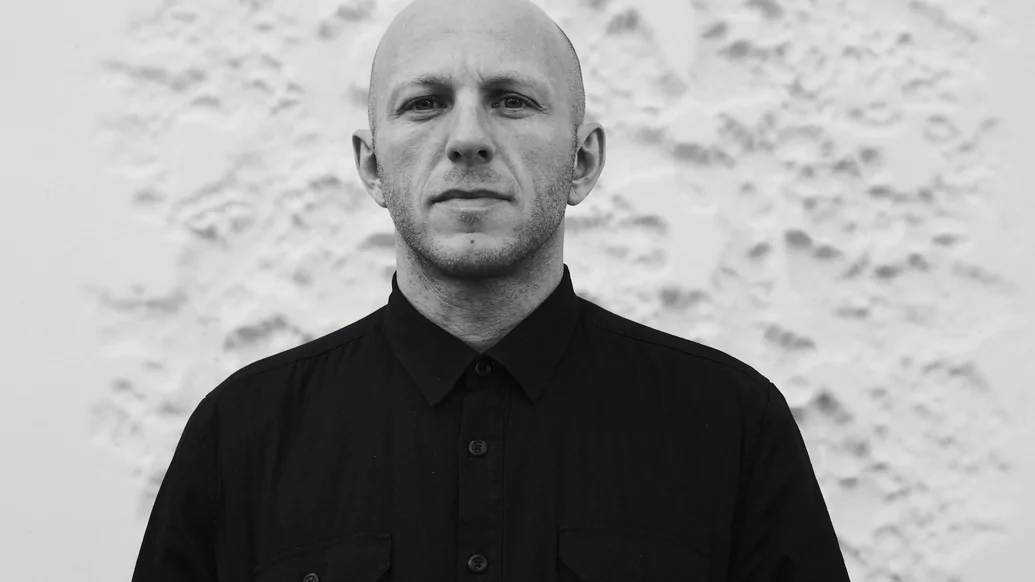
"DJs need to consider that times have changed and producer revenues are going drastically down, while our fees are generally going up" – DVS1
Is there a knowledge gap in your experience between producers and DJs in terms of producers knowing what they are owed from sets at big festivals, and also DJs knowing it's their responsibility to report setlists etc? How can we make that gap smaller?
“Again, the DJs don't see a point because there is no way to do it easily. The producers don’t know the potential earnings because there are no good examples of what the world might look like if it was more fairly distributed. Many people have simply accepted the flawed ways of our current systems. With platforms like Aslice, we can narrow that gap with the real-time information we can provide to producers, the immediate feedback to DJs submitting playlists, and the success stories of real-world payouts via our system.”
What kind of resistance, if any, have you heard from DJs when beta testing Aslice?
“Of the 400-plus people we have spoken to during our private beta, I can say that about three had given us some resistance to the idea of sharing, simply because they believed they already do enough to support producers. I would challenge any DJ who earns money playing other people's music to really think about this simple question: Do you feel you do enough to support the people whose music you play? Do you think that the existing systems and opportunities are fair for producers?”
Donating a percentage could expose a DJ's fee, which as we know, agents and DJs themselves may be protective over. How do you aim to solve that?
“For DJs, we have already taken that into account and built our system around certain levels of privacy. For instance, no one will ever see how much a DJ gives for any playlist, this information is strictly private, and the amount a DJ gives is entirely voluntary. Some will give the suggested 5% while others will give more or less. We wanted to build a system where an up-and-coming DJ can give a smaller amount and still feel as important as a big-name DJ giving substantially more. The aspect of sharing on our platform is not about popularity or competition; it's about equality and fairness. There won’t be any top 100 on Aslice. When it comes to individual tracks, no publicly viewed area of our site or track reporting is ever posted with a financial amount attached to it. Even in the private accounting section of a producer in our system, the transactions for individual tracks show up as ID numbers to make reverse engineering of an artist share amount or supposed fee impossible.”
It’s a big risk for the success of a business to rely almost entirely on altruism. Do you really think there are enough DJs who will voluntarily offer up a percentage of their fees? And, if so, what makes you think that?
“If altruism was the only reason why, I might agree with you. I believe there are a lot of us who just need a path to do the right thing and need an easy way to accomplish that. The reality is that DJs will do this for a variety of reasons. While some will do this because it's the right thing to do, others might do this for the tax write-off or even the social status and visibility of them doing something good for the community. Any of these motives are reasonable since I see the results and impact of them sharing far more important than the reason why!”
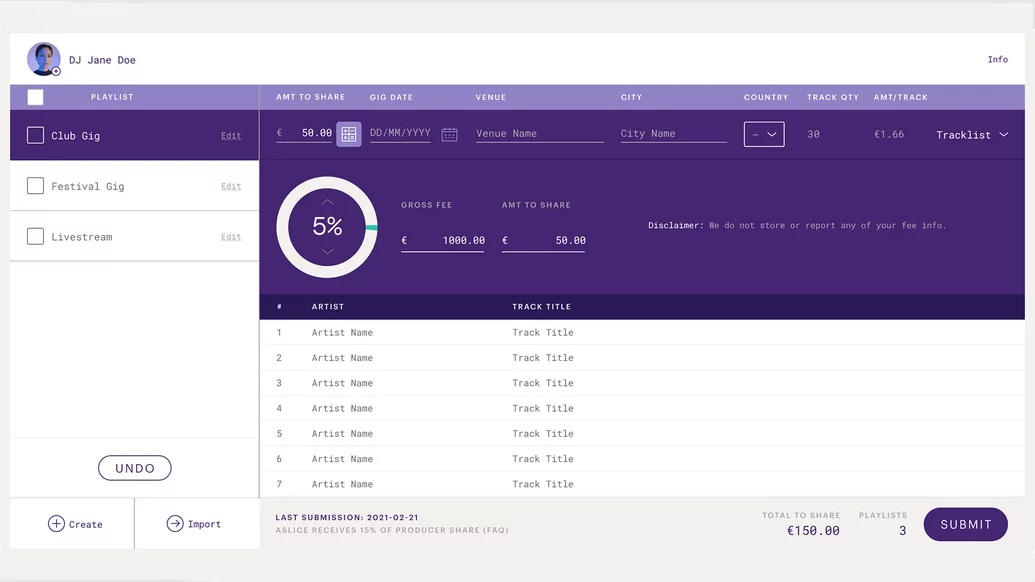
"I would challenge any DJ who earns money playing other people's music to really think about this simple question: ‘Do you feel you do enough to support the people whose music you play?" – DVS1
In your press release there’s a quote that reads: "For some producers, Aslice may result in the first payments in their career. For some legacy artists who made classic records still played today but signed some horrible record deal, this could be a second chance at getting the income they deserve." This is a powerful idea. In an industry that often feels exploitative, what else can bigger DJs do to help give the music they play the right attention and credit?
“Report these playlists to Aslice and set the standard and new normal to future generations and up-and-coming artists, regardless of the amount you are able to give or where your status is on the food chain of success. Beyond the financial aspect of Aslice and those payments going to legacy artists or current talent, the most significant factor is the real-time data that can be delivered to these producers. Imagine, as a producer, seeing regular updates about who just played your music and where it was played. Instead of the random scroll through Instagram on Monday looking for proof [that] a DJ played your track. You can now see who is reporting it and use that to your advantage in real-time. That data could impact everything from record and music sales, bookings in certain territories, agency and representation and future opportunities, and proof to collection or PROs for secondary payments.”
Do you see Aslice as a stop-gap while PROs adapt to new tech around Shazam-style boxes or do you see Aslice as a permanent solution?
“I see both. Aslice has the potential to revolutionise the electronic music world and become a new industry standard and an independent solution. It can work in unison with existing systems and PROs by providing future data connections and artist portals directly between Aslice and the collection societies. Regarding Shazam-style or ‘black boxes’ that have already existed for ten-plus years and still only show up in less than 1% of venues worldwide. You can do the math and put two and two together. PROs and other groups tasked with fixing this problem are in absolutely no hurry to make it happen. While Aslice can offer its own take on a solution now, I genuinely hope people recognise our community’s power as a larger group and the pressure we can put on old failing systems to step up and do their job. Our doors are open to any and all collection societies who want to work together towards a more equitable future for electronic artists and performers.”
